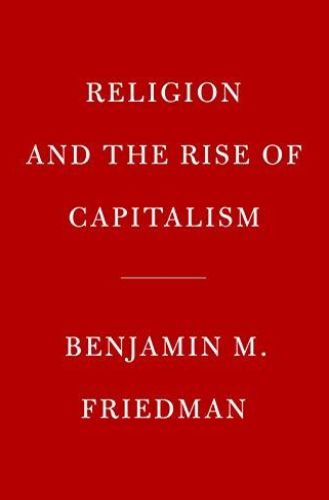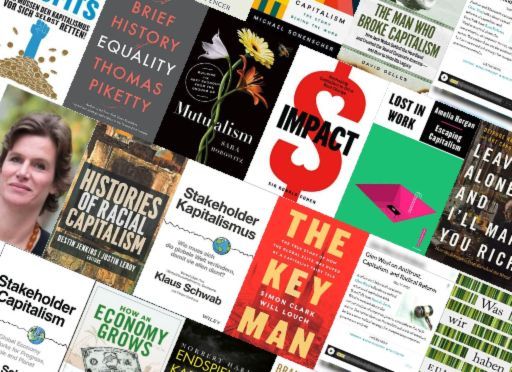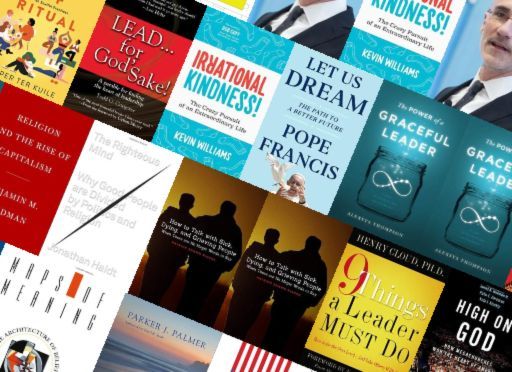Harvard professor Benjamin M. Friedman provides a fascinating, groundbreaking overview of the remarkable intertwining of Christian beliefs and US economic policies.

Religion and Money
Benjamin M. Friedman, a professor of political economy and the former chair of the economics department at Harvard, delves headlong into the sensitive topic of religion’s impact on economics. He offers readers an impartial and comprehensive history of that relationship in the United States that focuses on Adam Smith, Calvinism and modern-day evangelical voters. Friedman’s thought-provoking approach reveals why the US economy differs from those of other developed countries.
Academics, economists and literary journals found much food for thought here. Library Journal said, “[Friedman’s] detailed tracing of the philosophical and theological roots of free market economics is well researched, well written and well worth reading.” Booklist called Friedman’s insights “a bracing challenge to narrowly secular assessments of economic theory.” And The New York Times Book Review wrote that Friedman “covers not only the main thinkers in both economics and theology, but also the less well-known ones who helped shape their thought.”
Adam Smith
Friedman cites how, in The Wealth of Nations, Adam Smith explained that individuals prioritizing their self-interests in a civilized and competitive environment can produce positive results for their wider community.
The historical image of economics as a product of the Enlightenment is accurate. The idea that because of this parentage economics has been uninfluenced by religious thinking is not.Benjamin M. Friedman
Smith was not devout, but Friedman reminds readers that academia and religious study were inseparable in 18th-century Scotland. At that time, Friedman explains, exploring the glory of God’s creation provided the context for scientific discoveries, an approach that pious physics genius Isaac Newton endorsed. The Wealth of Nations reveals how self-governing mechanisms can manage the economy; Friedman posits this as, in Smith’s view, a kind of divine plan.
Enslavement
Calvinists, Friedman reveals, were incentivized to be moral, devout and industrious, which led to a culture that honored hard work. Early Americans were skeptical, the author relates, about government, and this acted as a brake on state authority.
Friedman points out that US economists on all sides anchored their views on human enslavement in religious ideals. He finds that the Calvinist belief in the Bible’s command that people live only by their own toil provided an argument against slavery. Friedman tracks how, in the 1830s and 1840s, America’s largest Protestant groups split into Northern and Southern denominations over the question of enslavement. The Civil War seemed a holy war, the author recognizes, for those seeking to remove the nation’s moral stain.
The Gospel of Wealth
Friedman finds that the concentrated wealth of a few powerful individuals characterized the US economy in the 19th century. The gospel of wealth claimed that the tactics the rich used to get rich could be deployed for the greater good through Christian charity. Friedman provides the example of Andrew Carnegie, the richest man in America, who shared these beliefs and sponsored many libraries and university buildings.
Friedman regards the United States as a significant outlier, relative to other countries, in its relationship to religiosity and wealth; America compares only to the Muslim oil states in this regard. The author cites how 53% of Americans say religion is very important in their lives, versus only 15% of respondents in other G7 nations. Friedman relates that a popular 1896 novel, In His Steps, called for Christian values to be transmitted through practical social improvements.
We are called to convert men, as we are called at the same time and with equal authority to furnish them a Christian society to live in after they have converted.Washington Gladden, Congregational minister
The author provides another fascinating link when he reveals that social gospel Christianity influenced President Franklin D. Roosevelt’s moral education. His interventionist policies of the 1930s, Friedman uncovers, echoed calls made by Protestant organizations.
Not Government
Friedman conveys how, in the 1950s, commentator William F. Buckley brought together religious and economic conservatives to fight communism. Buckley argued that religion must guide the amassing and disposal of wealth.
We Americans,’ Herman Melville declared, ‘are the peculiar chosen people – the Israel of our time; we bear the ark of the liberties of the world’.Benjamin M. Friedman
Evangelical Christians believe, Friedman notes, that financial social assistance should come from Christian charity, not government, thus propelling evangelicals toward right-wing, free market and small-government policies.
Friedman finds that attitudes toward estate taxes illustrate an irrational voting paradox: Some 53% of white evangelicals favor abolishing the already light estate tax. Friedman notes that this – along with Americans’ overestimation of their prospects for economic mobility – ensures far less redistributional government spending in the United States than in other nations, a result that fosters inequality and poverty.
Multifaceted
Friedman’s astonishing range of knowledge and insight fuels this synthesis of world-changing Western religious doctrines and their effects on US capitalism and American attitudes. Though you may have never considered how these forces shape one another – and the world in which they operate – Friedman’s work will ensure you never consider contemporary economic forces without framing them through the prisms he provides. For all the depth, breadth and scope of his acumen, Friedman writes with great verve and engagement. You may therefore also be surprised by how clear his complex ideas seem and the variety of thoughts and insights they inspire. Businesspeople, students, professors, those intrigued by American history and those curious about the impact of present-day religious movements will be enthralled and enlightened.
Benjamin M. Friedman also wrote The Moral Consequences of Economic Growth. Illuminating works providing unusual approaches to understanding capitalism include Land by Simon Winchester, The Enlightenment by Ritchie Robertson and Ages of American Capitalism by Jonathan Levy.












